
Translate This Page
“Blessed is the man who trusts in
the LORD, and whose hope is the
LORD.” Jeremiah 17:7
Use the other language selector on my home page above to go through my whole site using any native language you speak.
Then use the video below to see and listen to the same teaching topic in text below.
الذى فى الاعلى
Next, Use the world site selector on my home page above to go to the search engine site or the social media site you like.
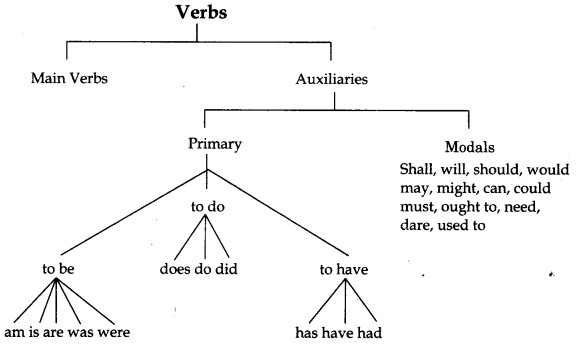
Present simple tenses
She wants a drink.
Examples

I am singing at church today.
The boys are playing ball after school.
Examples
The following are basic examples of the present
continuous tense.
The verb tense in each sentence is underlined.
She is crying.
He is talking to his friend.
The baby is sleeping in his crib.
We are visiting the museum in the afternoon.
Present continuous tense can be used to express
something happening right now or to express
something that is not happening right now.
Examples of this use include:
He is not standing.
Anthony is sitting in the chair.
You are not watching the movie.
Rose is reading a book.
Present
continuous tense can also be used to show
that something will or will
not happen in the near
future.
Examples of this use include:
She is not going to the game tonight.
He is meeting his friends after school.
Are you visiting your cousin this weekend?
I am not going to the meeting after work.
Is John playing football today?
Present continuous tense can be used for actions
that are still happening at the time of speaking.
Examples of this use include:
Marc is making pizza now.
They are eating lunch right now.
Frances is talking on the phone at the moment.
Present continuous tense can be used in questions
as well. Here are some more examples of this use:
Is she laughing?
Are they listening to the teacher?
Is the baby drinking his bottle?
Are you going?

More Uses of Present Continuous
Tense
In addition to the above, the present continuous
tense can be used to describe actions that are
being repeated. Words like always, constantly
and forever are used along with the verb.
Examples of this use include:
Jack and Jill are always fighting.
She is constantly complaining about her sister.
Her mother is forever misplacing her keys.
Present continuous tense can be used when speaking about current trends.
Examples of this use include:
Shopping online is growing in popularity nowadays.
The stocks are dropping constantly due to the
economy.
Today, most people are using text messages
instead of the phone.
Another use of this tense is when talking about a
planned event in the future. Examples of this use
include:
We are leaving for the beach tomorrow morning.
The kids are arriving at six o'clock.
She is speaking at the conference this evening.
When Not to Use Present Continuous Tense
There are certain verbs that cannot be used in the
present continuous tense. The following verbs are
non-continuous:
Communication: agree, promise, surprise
Feelings: like, love, hate
Senses: hear, see, smell, taste
Thinking: believe, know, understand
Present Perfect
The present perfect is a verb tense which is used to
show that an action has taken place once or many
times before now. The present perfect is most
frequently used to talk about experiences or changes
that have taken place, but there are other less
common uses as well. Read on for detailed
descriptions, examples, and present perfect exercises.
Present Perfect Forms
The present perfect is formed using has/have + past
participle. Questions are indicated by inverting the
subject and has/have. Negatives are made with not.
Statement: You have seen that movie many times.
Question: Have you seen that movie many times?
Negative: You have not seen that movie many times.
Present Perfect Uses
USE 1 Unspecified Time Before Now

We use the present perfect to say that an action
happened at an unspecified time before now.
The exact time is not important. You CANNOT
use the present perfect with specific time expressions
such as: yesterday, one year ago, last week, when I
was a child, when I lived in Japan, at that moment,
that day, one day, etc.
We CAN use the present perfect with unspecific
expressions such as: ever, never, once, many times,
several times, before, so far, already, yet, etc.
Examples:
I have seen that movie twenty times.
I think I have met him once before.
There have been many earthquakes in California.
People have traveled to the Moon.
People have not traveled to Mars.
Have you read the book yet?
Nobody has ever climbed that mountain.
A: Has there ever been a war in the United States?
B: Yes, there has been a war in the United States.
How Do You Actually Use the Present Perfect?
The concept of "unspecified time" can be very
confusing to English learners. It is best to associate
present perfect with the following topics:
TOPIC 1 Experience
You can use the present perfect to describe your
experience. It is like saying, "I have the experience
of..." You can also use this tense to say that you
have never had a certain experience. The present
perfect is NOT used to describe a specific event.
Examples:
TOPIC 2 Change Over Time
We often use the present perfect to talk about
change that has happened over a period of time.
Examples:
You have grown since the last time I saw you.
The government has become more interested
in arts education.
Japanese has become one of the most popular
courses at the university since the Asian studies
program was established.
My English has really improved since I moved to
Australia.

TOPIC 3 Accomplishments
We often use the present perfect to list the accomplishments of individuals and humanity. You cannot mention a specific time.
Examples:
- Man has walked on the Moon.
- Our son has learned how to read.
- Doctors have cured many deadly diseases.
- Scientists have split the atom.
TOPIC 4 An Uncompleted Action
You Are Expecting
We often use the present perfect to say that an action which we
expected has not happened. Using the present perfect suggests that we
are still waiting for the action to happen.
Examples:
- James has not finished his homework yet.
- Susan hasn't mastered Japanese, but she can communicate.
- Bill has still not arrived.
- The rain hasn't stopped.
TOPIC 5 Multiple Actions at Different Times
We also use the present perfect to talk about several different actions which have occurred in the past at different times. Present perfect suggests the process is not complete and more actions are possible.
Examples:
- The army has attacked that city five times.
- I have had four quizzes and five tests so far this semester.
- We have had many major problems while working on this project.
- She has talked to several specialists about her problem, but nobody knows why she is sick.
Time Expressions with Present Perfect
When we use the present perfect it means that something has happened
at some point in our lives before now. Remember, the exact time the
action happened is not important.

Sometimes, we want to limit the time we are looking in for an experience. We can do this with expressions such as: in the last week, in the last year, this week, this month, so far, up to now, etc.

Examples:
- Have you been to Mexico in the last year?
- I have seen that movie six times in the last month.
- They have had three tests in the last week.
- She graduated from university less than three years ago. She has worked for three different companies so far.
- My car has broken down three times this week.
NOTICE
"Last year" and "in the last year" are very different in meaning.
"Last year" means the year before now, and it is considered a specific
time which requires simple past. "In the last year" means from 365 days ago until now. It is not considered a specific time, so it requires present perfect.
Examples:
- I went to Mexico last year.
I went to Mexico in the calendar year before this one. - I have been to Mexico in the last year.
I have been to Mexico at least once at some point between 365 days ago and now.
USE 2 Duration From the Past Until Now (Non-Continuous Verbs)

With non- continuous verbs and non-continuous uses of mixed verbs, we use the present perfect to show that something started in the past and has continued up until now. "For five minutes," "for two weeks," and "since Tuesday" are all duration which can be used with the present perfect.
Examples:
- I have had a cold for two weeks.
- She has been in England for six months.
- Mary has loved chocolate since she was a little girl.
Although the above use of present perfect is normally limited to non-continuous verbs and non-continuous uses of mixed verbs, the words "live," "work," "teach," and "study" are sometimes used in this way even though they are NOT non-continuous verbs.

ADVERB PLACEMENT
The examples below show the placement for grammar adverbs such as: always, only, never, ever, still, just, etc.
Examples:
- You have only seen that movie one time.
- Have you only seen that movie one time?
ACTIVE / PASSIVE
Examples:
- Many tourists have visited that castle. Active
- That castle has been visited by many tourists. Passive

Past Simple
Level: beginner
With most verbs, the past tense is formed by adding –ed:
| called | liked | wanted | worked |
But there are a lot of irregular past tense
forms in English.
We use the past tense to talk about:
- something that happened once in the past:
I met my wife in 1983.
We went to Spain for our holidays.
They got home very late last night.
- something that happened several times in the past:
When I was a boy, I walked a mile to school every day.
We swam a lot while we were on holiday.
They always enjoyed visiting their friends.
- something that was true for some time in the past:
I lived abroad for ten years.
He enjoyed being a student.
She played a lot of tennis when she was younger.
- we often use expressions with ago with the past simple:
I met my wife a long time ago.
Past simple questions and negatives
We use did to make questions with the past simple:
Did she play tennis when she was younger?
Did you live abroad?
When did you meet your wife?
Where did you go for your holidays?
But questions with who often don't use did:
Who discovered penicillin?
Who wrote Don Quixote?
We use didn't (did not) to make negatives
with the past simple:
They didn't go to Spain this year.
We didn't get home until very late last night.
I didn't see you yesterday.
Past continuous
Level: beginner
The past continuous is made from the past tense of the verb be and the –ing form of a verb:
|
I was |
working etc. |
We use the past continuous to talk about the past
-
for something which happened before and after another action:
The children were doing their homework when I got home.
Compare: The children did their homework when (= after) I got home.
This use of the past continuous is very common at the beginning of a story:
The other day I was waiting for a bus when …
Last week, as I was driving to work, …
- for something that
- happened before and after a specific time:
It was eight o'clock. I was writing a letter.
Compare: At eight o'clock I wrote (= started writing) some letters.
- to show that something continued for some time:
My head was aching.
Everyone was shouting.
- for something that happened again and again:
I was practising every day, three times a day.
They were meeting secretly after school.
They were always quarrelling.
- with verbs which show change or growth:
The children were growing up quickly.
Her English was improving.
My hair was going grey.
The town was changing quickly.
We do not normally use the past continuous
with stative verbs.
We use the past simple instead:
When I got home, I really needed (NOT
was needing) a shower.
The Past Perfect Simple Tense
Time Expressions in the Past Perfect Simple
The time expressions already, for, since, and yet
may be used in the
past perfect simple, as they
are in the present perfect simple. Remember
the
following rules for using other time expressions:
- Use after, as soon as, the moment that, until before using the past perfect simple.
Ex: After she had moved out, I found her notes./ I didn’t say anything until she had finished talking.
- Use before, when, by the time before the past simple:
Ex. Before I knew it, she had run out the door. / By the time he phoned her, she had found someone new.
The past perfect simple is used to describe one action that happened before another action in the past.
In many cases a complete sentence is written in two parts with two different tenses:
- The past perfect simple, to refer to the action that happened first or earlier
- The past simple to refer to the action that happened second or later
Sometimes the past perfect simple is used on its own and the action that took place afterwards is understood.
- After Sofie had finished her work, she went to lunch.
(First she finished her work and then she went to eat lunch.)
- I washed the floor when the painter had gone.
(First the painter left and then I washed the floor.)
- Harold had known about it for a while.
(First he knew about it, then others knew about it)
The past perfect simple tense is formed by using the auxiliary verb had together with the V3 (past participle). The V3 (past participle) form of a regular verb looks just like a regular verb in the past simple:
- walk > walked / study > studied / stop > stopped / create > created
There are quite a few irregular verbs in English though. It pays to memorize them.
| Subject | had +Verb(V3) (Past Participle) |
Rest of Sentence |
| I / You / We / They He / She / It |
had met | him before he became famous |
| had lived | here for three years by the time we met |
Note: The order of phrases may be switched, but the meaning will stay the same.
- By the time Doris got to the party, everyone had gone home.
- Everyone had gone home by the time Doris had got to the party.
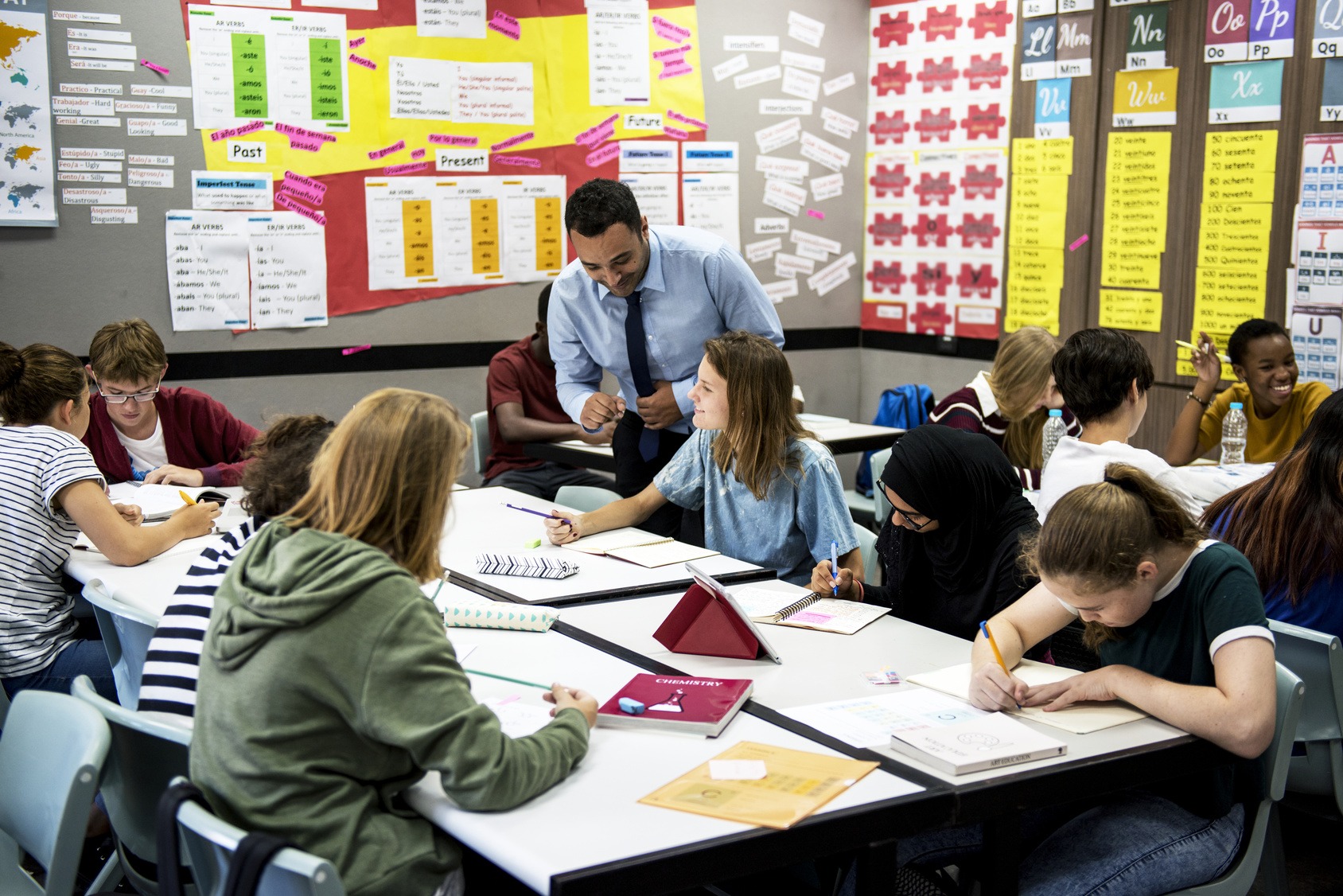
Note: Had Had – A verb combination that often causes confusion in the past perfect simple is had had. Ex. I had had enough to eat but I wanted dessert anyway. The first had is the auxiliary (or helping) verb and the second had is the V3 (or past participle) of the main verb to have. It means that even though I ate enough, I wanted dessert after that. It may look strange, but it is correct.
Contractions in the Past Perfect Simple
Punctuation Tip
When you begin a sentence with a time expression, put a comma (,) after the first part of the sentence.
We often contract the subject (the person or thing that had done the action) and had:
- I had > I’d – After I’d used the phone, I paid the bill.
- He had > He’d / She has > She’d / It has > It’d – It’d happened so quickly, I didn’t notice.
- We had > We’d / You have > You’d /They are > They’d – We’d just gotten home, when we heard the blast outside.
Negative Sentences in the
Past Perfect Simple Tense
When creating negative sentences, we use the auxiliary verbs hadn’t (had not) together with the V3 (past participle) form of the verb. You can also create a negative sentence by using the auxiliary verb had with the time expression never and then the V3.
| Subject | Auxillery Verb | Verb in V3 (Past Participle) |
Rest of Sentence |
| I / You / We / They He / She / It |
hadn’t (had not) | driven | a car before then |
| had never | driven | a car before the |
- I had not eaten at that restaurant before today.
- Samantha hadn’t had time to explain her side of the story.
- My friends hadn’t ever gone to France.
- My friends had never gone to the USA either.
Yes/No Questions in the Past Perfect Simple
To create a question that will be answered with a yes or no, start the question with Had (Hadn’t for a negative question) then add a subject (the person or thing that had done the action) followed by the V3 (Past Participle) form of the verb and only then add the rest of the sentence.
| Auxiliary Verb | Subject | Verb in V3 (Past Participle) |
Rest of Sentence |
| Had | I / you / we / they he / she / it |
had | time to rehearse you’re the song |
| Had |
he / she / it |
eaten |
there before |
- Had you cleaned up the mess by the time they came home?
- Had Adam ever spoken to the CEO before he was fired?

Wh-Questions in the Past Perfect Simple
Wh- questions are questions that require more information in their answers. Typical wh- words are what, where, when, why, who, how, how many, how much.
To create a wh-question, start with the wh-word, then add had, then
the subject (a person or thing that had done the action), followed by
the V3 (Past Participle) form of the verb and only then add the rest of
the
sentence.
| Wh-Word | Auxiliary Verb | Subject | Verb in V3 (Past Participle) |
Rest of Sentence |
| What | had | I / you / we / they he / she / it |
taught | before leaving education |
| Why | had | changed | the subjec |
- What had they said that made him so angry?
- Why had he agreed to work for that salary?
- How much had he drunk before you got to him?
Tag Questions in the Past Perfect Simple
Tag questions are those short questions that are tagged onto the end of a sentence. They are used just to make sure that the person you’re talking to understood what you meant or to emphasize what you said.
They’re formed by writing a regular sentence in the past perfect simple, then by adding hadn’t and a pronoun (I, you, we, they, he, she, it) and a Question Mark.
- John had known about the cancer for a couple of years, hadn’t he?
- They had been in business together, hadn’t they?
You may also add a positive tag when you’re using a negative sentence.
- Jennifer hadn’t spoken to you about it, had she?
- They had never eaten a proper Indian meal, had they?
As a rule: When the sentence is positive, the tag is negative.
When the sentence is negative, the tag is positive.
Exercises – Past Perfect Simple
Fill in the correct form of the past perfect simple or past simple as in the examples.
- After Loren had turned on the alarm, she locked the door. (turn on)
- By the time Simone arrived, the police had already left. (arrive)
- Had you known about the contract they signed? (know)
- After the company _____Joe, he began to work on his first project. (hire)
- _____you _______ the news before you saw it on TV? (hear)
- Michael didn’t want to see the movie because he _______ the book yet. (not read)
- The concert ______ already _______when we _______ the stadium. (begin/ enter)
- Until Anne ________ Mark, she ____ never ______in love. (meet, be)
- Bill __________ for years before he finally _______. (smoke/ quit)
- _______ Sara ever _______to London by herself before then? (drive)
- How many fish ______ the boys _____ by the time it started raining? (catch)
- You ________ them to go to the beach, hadn’t you? (forbid)
- The girls _______ in weeks? That’s why they ______ so much afterwards. (exercise / hurt)
Answers:
- had hired
- Had/heard
- hadn’t read
- had/begun/entered
- met/had/been
- had smoked/quit
- Had/driven
- had/caught
- had forbidden
- hadn’t exercised / hurt
Examples – Past Perfect Simple
- After Sofie had finished her work, she went to lunch.
- I washed the floor when the painter had gone.
- Harold had known about it for a while.
- I didn’t say anything until she had finished talking.
- After she had moved out, I found her notes.
- Before I knew it, she had run out the door.
- By the time he phoned her, she had found someone new.
- By the time Doris got to the party, everyone had gone home.
- Everyone had gone home by the time Doris had got to the party.
- I had had enough of his complaining.
- After I’d used the phone, I paid the bill.
- It’d happened so quickly, I didn’t notice.
- We’d just gotten home, when we heard the blast outside.
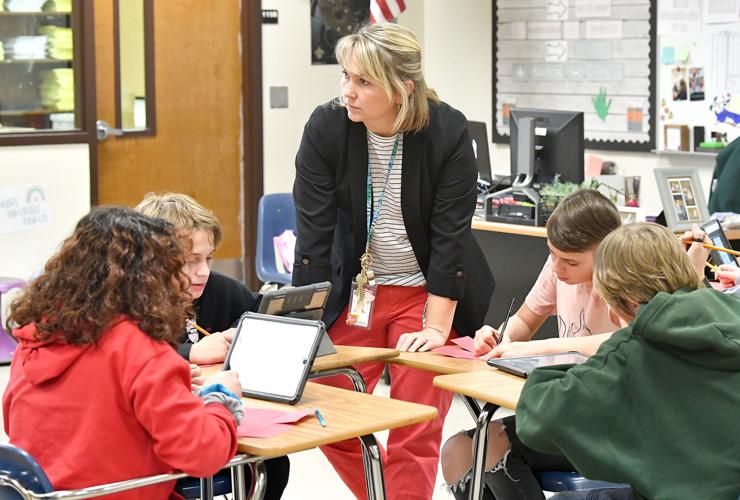
Negative
- I had not eaten at that restaurant before today.
- Samantha hadn’t had time to explain her side of the story.
- My friends hadn’t ever gone to France.
- My friends had never gone to the USA either.
Yes/No Questions
- Had you cleaned up the mess by the time they came home?
- Had Adam ever spoken to the CEO before he was fired?
Wh- Questions
- What had they said that made him so angry?
- Why had he agreed to work for that salary?
- How much had he drunk before you got to him?
Tag Questions
- John had known about the cancer for a couple of years, hadn’t he?
- They had been in business together, hadn’t they?
- Jenifer hadn’t spoken to you about it, had she?
- They had never eaten a proper Indian meal, had they?
The Past Perfect Continuous
Firstly, let's look at the positive form:
- I had been living
- You had been going
- She had been sleeping
- He had been working
- It had been raining
- We had been studying
- They had been cooking
The short form is: 'd been verb-ing. Be careful, because the short form for 'would' is also 'd. However, 'would' is always followed by the infinitive, but 'had' is followed by the past participle.
Next, the negative form:
- I had not been trying (I hadn't been..)
- You had not been working (you hadn't been..)
- She had not been crying (she hadn't been..)
- He had not been shopping (he hadn't been..)
- It had not been snowing (it hadn't been..)
- We had not been reading (we hadn't been..)
- They had not been running (they hadn't been..)
It's pretty easy to make the question too.
'Yes / no' questions:
- Had I been working?
- Had you been sleeping?
- Had she been reading?
- Had he been watching TV?
- Had it been raining?
- Had we been drinking?
- Had they been eating?
'Wh' questions:
- Where had I been working?
- How long had you been sleeping?
- What had she been reading?
- How long had he been watching TV?
- How long had it been raining?
- What had we been drinking?
- Why had they been eating?
Future Simple
How do we make the Future Simple tense?
The structure of the Future Simple tense is:
| subject | + | auxiliary will | + | main verb |
| invariable | base | |||
| will | V1 |
For negative sentences in the Future Simple tense, we insert not between the auxiliary verb and main verb. For question sentences, we exchange the subject and auxiliary verb. Look at these example sentences with the Future Simple tense:
| |
subject | auxiliary verb | main verb | ||
|---|---|---|---|---|---|
| + | I | will | open | the door. | |
| + | You | will | finish | before me. | |
| - | She | will | not | be | at school tomorrow. |
| - | We | will | not | leave | yet. |
| ? | Will | you | arrive | on time? | |
| ? | Will | they | want | dinner? |
Contraction with Future Simple
When we use the Future Simple tense in speaking, we often contract the subject and auxiliary verb:
| I will | I'll |
| you will | you'll |
| he will she will it will |
he'll she'll it'll |
| we will | we'll |
| they will | they'll |
In negative sentences, we contract with won't, like this:
| I will not | I won't |
| you will not | you won't |
| he will not she will not it will not |
he won't she won't it won't |
| we will not | we won't |
| they will not | they won't |
How do we use the Future Simple tense?
No Plan
We use the Future Simple tense when there is no plan or decision to do something before we speak. We make the decision spontaneously at the time of speaking. Look at these examples:
- Hold on. I'll get a pen.
- We will see what we can do to help you.
- Maybe we'll stay in and watch television tonight.
In these examples, we had no firm plan before speaking. The decision is made at the time of speaking.
We often use the Future Simple tense with the verb to think before it:
- I think I'll go to the gym tomorrow.
- I think I will have a holiday next year.
- I don't think I'll buy that car.
Prediction
We often use the Future Simple tense to make a prediction about the future. Again, there is no firm plan. We are saying what we think will happen. Here are some examples:
- It will rain tomorrow.
- People won't go to Jupiter before the 22nd century.
- Who do you think will get the job?
Be
When the main verb is be, we can use the Future Simple tense even if we have a firm plan or decision before speaking. Examples:
- I'll be in London tomorrow.
- I'm going shopping. I won't be very long.
- Will you be at work tomorrow?
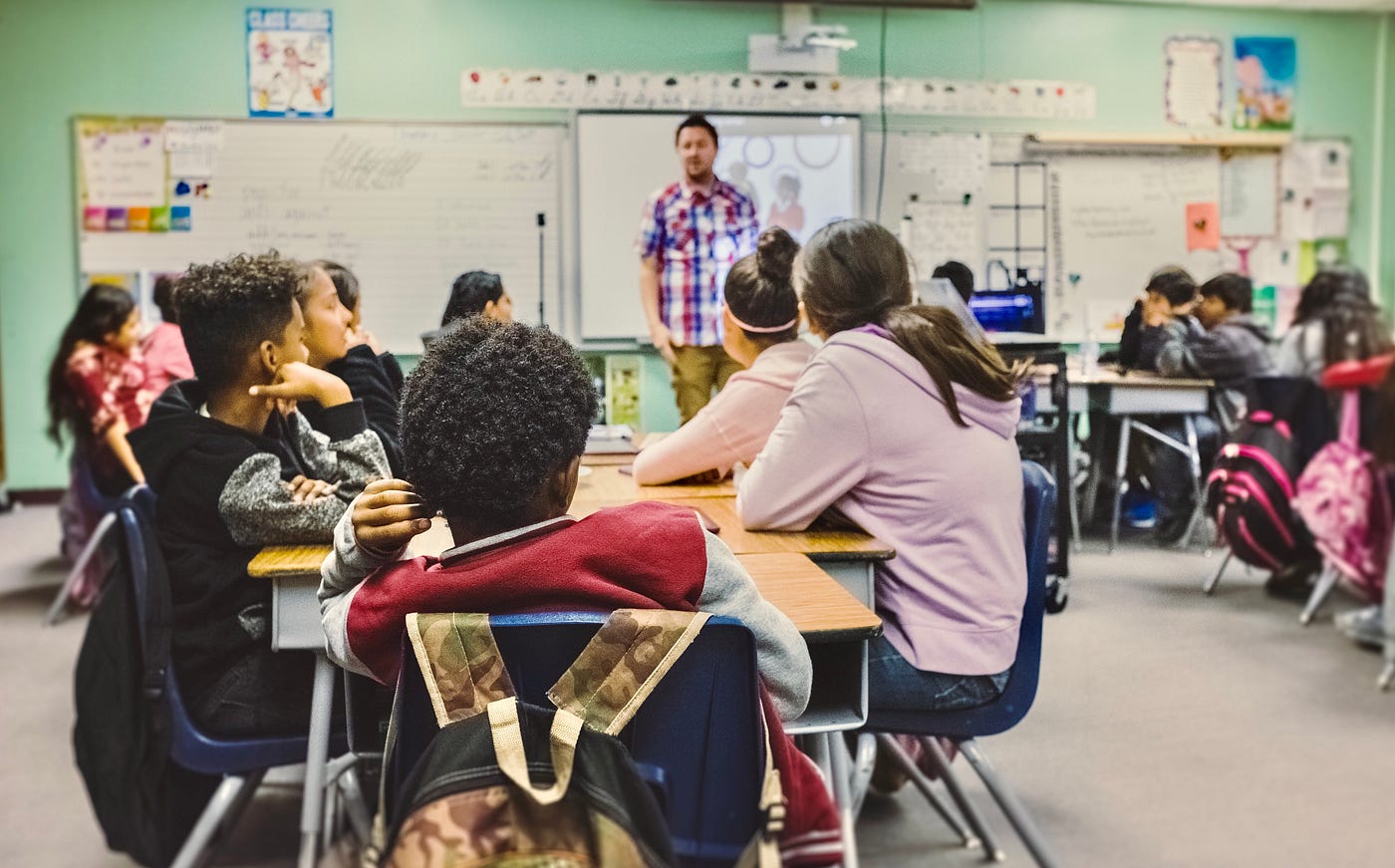
Form
The future continuous is made up of two elements:
the simple future of the verb 'to be' + the present participle (base+ing)
| Subject | simple future of the verb 'to be' | present participle |
|---|---|---|
| You | will be | watching |
| I | will be |
staying |
To stay, future continuous
| Affirmative | Negative | Interrogative | Negative Interrogative |
|---|---|---|---|
| I will be staying. | I won't be staying. | Will I be staying? | Won't I be staying? |
| You will be staying. | You won't be staying. | Will you be staying? | Won't you be staying? |
| He will be staying. | He won't be staying. | Will he be staying? | Won't he be staying? |
| She will be staying. | She won't be staying. | Will she be staying? | Won't she be staying? |
| It will be staying. | It won't be staying. | Will it be staying? | Won't it be staying? |
| We will be staying. | We won't be staying. | Will we be staying? | Won't we be staying? |
| They will be staying. | They won't be staying. | Will they be staying? |
Won't they be staying? |
Functions
The future continuous refers to an unfinished action or event that will be in progress at a time later than now. The future continuous is used for quite a few different purposes.
The future continuous can be used to project ourselves into the future.
Examples
- This time next week I will be sun-bathing in Bali.
- By Christmas I will be skiing like a pro.
- Just think, next Monday you will be working in your new job.
:max_bytes(150000):strip_icc()/Student-demonstrating-58acb4133df78c345b9e8f6b.jpg)
The future continuous can be used for predicting or guessing about future events.
Examples
- He'll be coming to the meeting, I expect.
- I guess you'll be feeling thirsty after working in the sun.
- You'll be missing the sunshine once you're back in England.
In the interrogative form, the future continuous can be used to ask politely for information about the future.
Examples
- Will you be bringing your friend to the pub tonight?
- Will Jim be coming with us?
- Will she be going to the party tonight?
- Will I be sleeping in this room?
The future continuous can be used to refer to continuous events that we expect to happen in the future.
Examples
- I'll be seeing Jim at the conference next week.
- When he is in Australia he will be staying with friends.
- I'll be eating with Jane this evening so I can tell her.
When combined with still, the future continuous refers to events that are already happening now and that we expect to continue some time into the future.
Examples
- In an hour I'll still be ironing my clothes.
- Tomorrow he'll still be suffering from his cold.
- Next year will she still be wearing a size six?
- Won't stock prices still be falling in the morning?
- Unfortunately, sea levels will still be rising in 20 years.
The Future Perfect Tense
The future perfect is made with the future simple of 'have'
(will have) and the past participle. For regular past participles add
'ed' to the verb ('play' becomes 'played').
Here's the positive:
By six pm tonight:
- I will have finished this book
- You will have studied the English tenses
- She will have cooked dinner
- He will have arrived
- We will have met Julie
- It will have stopped raining
- They will have left Japan
For the short form, we change will to 'll.
But, when we are speaking, we also make 'have' shorter, so it sounds
like I'll've finished (don't write this!). Here are some examples for
you to listen to:
- I'll have finished this book
- You'll have studied the English tenses
- She'll have cooked dinner
- He'll have arrived
- We'll have met Julie
- It'll have stopped raining
- They'll have left Japan
Here's the negative:
By next week,
- I will not have finished this book
- You will not have studied the English tenses
- She will not have cooked dinner
- He will not have arrived
- We will not have met Julie
- It will not have stopped raining
- They will not have left Japan
Here's the short form. Listen to how I shorten 'have' when I'm speaking:
- I won't have finished this book
- You won't have studied the English tenses
- She won't have cooked dinner
- He won't have arrived
- We won't have met Julie
- It won't have stopped raining
- They won't have left Japan

To make the question,
just put 'will' before the subject:
'Yes / no' questions:
By next year,
- will I have finished writing this book?
- will you have studied all the English verb tenses?
- will she have graduated?
- will he have got married?
- will it have got colder?
- will we have met your boyfriend?
- will they have left their jobs?
'Wh' questions:
- When will I have finished writing this book?
- Why will you have studied all the English verb tenses by tomorrow?
- When will she have been here three weeks?
- Why will he have got married before June?
- Why will it have got colder by May?
- How will we have met your boyfriend by tonight?
- When will they have left their jobs?
The Future Perfect Tense
The future perfect is made with the future simple of 'have'
(will have) and the past participle. For regular past participles add
'ed' to the verb ('play' becomes 'played').
Here's the positive:
By six pm tonight:
- I will have finished this book
- You will have studied the English tenses
- She will have cooked dinner
- He will have arrived
- We will have met Julie
- It will have stopped raining
- They will have left Japan
For the short form, we change will to 'll.
But, when we are speaking, we also make 'have' shorter, so it sounds
like I'll've finished (don't write this!). Here are some examples for
you to listen to:
- I'll have finished this book
- You'll have studied the English tenses
- She'll have cooked dinner
- He'll have arrived
- We'll have met Julie
- It'll have stopped raining
- They'll have left Japan
Here's the negative:
By next week,
- I will not have finished this book
- You will not have studied the English tenses
- She will not have cooked dinner
- He will not have arrived
- We will not have met Julie
- It will not have stopped raining
- They will not have left Japan
Here's the short form. Listen to how I shorten 'have' when I'm speaking:
- I won't have finished this book
- You won't have studied the English tenses
- She won't have cooked dinner
- He won't have arrived
- We won't have met Julie
- It won't have stopped raining
- They won't have left Japan
To make the question, just put 'will' before the subject:
'Yes / no' questions:
By next year,
- will I have finished writing this book?
- will you have studied all the English verb tenses?
- will she have graduated?
- will he have got married?
- will it have got colder?
- will we have met your boyfriend?
- will they have left their jobs?
'Wh' questions:
- When will I have finished writing this book?
- Why will you have studied all the English verb tenses by tomorrow?
- When will she have been here three weeks?
- Why will he have got married before June?
- Why will it have got colder by May?
- How will we have met your boyfriend by tonight?
- When will they have left their jobs?
:max_bytes(150000):strip_icc()/Student-demonstrating-58acb4133df78c345b9e8f6b.jpg)
Future Perfect Continuous
Future perfect continuous has two different forms: "will have been doing " and "be going to have been doing." Unlike simple future forms, future perfect continuous forms are usually interchangeable.
FORM Future Perfect Continuous with "Will"
[will have been + present participle]
Examples:
- You will have been waiting for more than two hours when her plane finally arrives.
- Will you have been waiting for more than two hours when her plane finally arrives?
- You will not have been waiting for more than two hours when her plane finally arrives.
FORM Future Perfect Continuous with "Be Going To"
[am/is/are + going to have been + present participle]
Examples:
- You are going to have been waiting for more than two hours when her plane finally arrives.
- Are you going to have been waiting for more than two hours when her plane finally arrives?
- You are not going to have been waiting for more than two hours when her plane finally arrives.
NOTE: It is possible to use either "will" or "be going to" to create
the
USE 1 Duration Before Something in the Future

We use the future perfect continuous to show that something will continue up until a particular event or time in the future. "For five minutes," "for two weeks," and "since Friday" are all durations which can be used with the future perfect continuous. Notice that this is related to the present perfect continuous and the past perfect continuous; however, with future perfect continuous, the duration stops at or before a reference point in the future.
Examples:
- They will have been talking for over an hour by the time Thomas arrives.
- She is going to have been working at that company for three years when it finally closes.
- James will have been teaching at the university for more than a year by the time he leaves for Asia.
- How long will you have been studying when you graduate?
- We are going to have been driving for over three days straight when we get to Anchorage.
- A: When you finish your English course, will you have been living in New Zealand for over a year?
B: No, I will not have been living here that long.
Notice in the examples above that the reference points (marked in italics) are in simple present rather than simple future. This is because these future events are in time clauses, and you cannot use future tenses in time clauses.
USE 2 Cause of Something in the Future

Using the future perfect continuous before another action in the future is a good way to show cause and effect.
Examples:
- Jason will be tired when he gets home because he will have been jogging for over an hour.
- Claudia's English will be perfect when she returns to Germany because she is going to have been studying English in the United States for over two years.

Future Continuous vs. Future Perfect
Continuous
If you do not include a duration such as "for five minutes," "for
two weeks" or "since Friday," many English speakers choose to use the
future continuous rather than the future perfect continuous. Be careful
because this can change the meaning of the sentence.
Future continuous
emphasizes interrupted actions, whereas future perfect continuous
emphasizes a duration of time before something in the future. Study the
examples below to understand the difference.
Examples:
- He will be tired because he will be exercising so hard.
This sentence emphasizes that he will be tired because he will be exercising at that exact moment in the future. - He will be tired because he will have been exercising so hard.
This sentence emphasizes that he will be tired because he will have been exercising for a period of time. It is possible that he will still be exercising at that moment OR that he will just have finished.
REMEMBER No Future in Time Clauses
Like all future forms, the future perfect continuous cannot be used
in clauses beginning with time expressions such as: when, while, before,
after, by the time, as soon as, if, unless, etc. Instead of future
perfect continuous, present perfect continuous is used.
Examples:
- You won't get a promotion until you will have been working here as long as Tim. Not Correct
- You won't get a promotion until you have been working here as long as Tim. Correct

AND REMEMBER Non-Continuous Verbs /
Mixed Verbs
It is important to remember that non-continuous verbs cannot be used in any continuous tenses. Also, certain non-continuous meanings for mixed verbs cannot be used in continuous tenses. Instead of using Future perfect continuous with these verbs, you must use future perfect.
Examples:
- Ned will have been having his driver's license for over two years. Not Correct
- Ned will have had his driver's license for over two years. Correct
ADVERB PLACEMENT
The examples below show the placement for grammar adverbs such as: always, only, never, ever, still, just, etc.
Examples:
- You will only have been waiting for a few minutes when her plane arrives.
- Will you only have been waiting for a few minutes when her plane arrives?
- You are only going to have been waiting for a few minutes when her plane arrives.
- Are you only going to have been waiting for a few minutes when her plane arrives?
ACTIVE / PASSIVE
Examples:
- The famous artist will have been painting the mural for over six months by the time it is finished. Active
- The mural will have been being painted by the famous artist for over six months by the time it is finished. Passive
- The famous artist is going to have been painting the mural for over six months by the time it is finished. Active
- The mural is going to have been being painted by the famous artist for over six months by the time it is finished. Passive
Future Perfect Continuous
Future perfect continuous has two different forms: "will have been doing " and "be going to have been doing." Unlike simple future forms, future perfect continuous forms are usually interchangeable.
FORM Future Perfect Continuous with "Will"
[will have been + present participle]
Examples:
- You will have been waiting for more than two hours when her plane finally arrives.
- Will you have been waiting for more than two hours when her plane finally arrives?
- You will not have been waiting for more than two hours when her plane finally arrives.
FORM Future Perfect Continuous with
"Be Going To"
[am/is/are + going to have been + present participle]
Examples:
- You are going to have been waiting for more than two hours when her plane finally arrives.
- Are you going to have been waiting for more than two hours when her plane finally arrives?
- You are not going to have been waiting for more than two hours when her plane finally arrives.
NOTE: It is possible to use either "will" or "be going to" to create
the
USE 1 Duration Before Something in the Future

We use the future perfect continuous to show that something will continue up until a particular event or time in the future. "For five minutes," "for two weeks," and "since Friday" are all duration which can be used with the future perfect continuous.
Notice that this is related to the present perfect continuous and the past perfect continuous ; however, with future perfect continuous, the duration stops at or before a reference point in the future.
Examples:
- They will have been talking for over an hour by the time Thomas arrives.
- She is going to have been working at that company for three years when it finally closes.
- James will have been teaching at the university for more than a year by the time he leaves for Asia.
- How long will you have been studying when you graduate?
- We are going to have been driving for over three days straight when we get to Anchorage.
- A: When you finish your English course, will you have been living in New Zealand for over a year?
B: No, I will not have been living here that long.

Notice in the examples above that the reference points (marked in italics) are in simple present rather than simple future. This is because these future events are in time clauses, and you cannot use future tenses in time clauses.
USE 2 Cause of Something in the Future

Using the future perfect continuous before another action in the future is a good way to show cause and effect.
Examples:
- Jason will be tired when he gets home because he will have been jogging for over an hour.
- Claudia's English will be perfect when she returns to Germany because she is going to have been studying English in the United States for over two years.
Future Continuous vs. Future Perfect
Continuous
If you do not include a duration such as "for five minutes," "for two weeks" or "since Friday," many English speakers choose to use the future continuous rather than the future perfect continuous. Be careful because this can change the meaning of the sentence.
Future continuous
emphasizes interrupted actions, whereas future perfect continuous
emphasizes a duration of time before something in the future. Study the
examples below to understand the difference.
Examples:
- He will be tired because he will be exercising so hard.
This sentence emphasizes that he will be tired because he will be exercising at that exact moment in the future. - He will be tired because he will have been exercising so hard.
This sentence emphasizes that he will be tired because he will have been exercising for a period of time. It is possible that he will still be exercising at that moment OR that he will just have finished.

REMEMBER No Future in Time Clauses
Like all future forms, the future perfect continuous cannot be used
in clauses beginning with time expressions such as: when, while, before,
after, by the time, as soon as, if, unless, etc. Instead of future
perfect continuous,present perfect continuous is used.
Examples:
- You won't get a promotion until you will have been working here as long as Tim. Not Correct
- You won't get a promotion until you have been working here as long as Tim. Correct
AND REMEMBER Non-Continuous Verbs /
Mixed Verbs
It is important to remember that non-continuous verbs cannot be used in any continuous tenses. Also, certain non-continuous meanings for mixed verbs cannot be used in continuous tenses. Instead of using Future perfect continuous with these verbs, you must use future perfect .
Examples:
- Ned will have been having his driver's license for over two years. Not Correct
- Ned will have had his driver's license for over two years. Correct..
ADVERB PLACEMENT
The examples below show the placement for grammar adverbs such as: always, only, never, ever, still, just, etc.
Examples:
- You will only have been waiting for a few minutes when her plane arrives.
- Will you only have been waiting for a few minutes when her plane arrives?
- You are only going to have been waiting for a few minutes when her plane arrives.
- Are you only going to have been waiting for a few minutes when her plane arrives?
ACTIVE / PASSIVE
Examples:
- The famous artist will have been painting the mural for over six months by the time it is finished. Active
- The mural will have been being painted by the famous artist for over six months by the time it is finished. Passive
- The famous artist is going to have been painting the mural for over six months by the time it is finished. Active
- The mural is going to have been being painted by the famous artist for over six months by the time it is finished. Passive
Future in the Past
Like simple future, future in the past has two different forms in English: would and was going to. Although the two forms can sometimes be used interchangeably, they often express two different meanings.
FORM Would
[would + VERB]
Examples:
- I knew you would help him.
- I knew you would not help him.
FORM Was/Were Going To
[was/were + going to + VERB]
Examples:
- I knew you were going to go to the party.
- I knew you were not going to go to the party.
USE 1 Future in Past

Future in the past is used to express the idea that in the past you thought something would happen in the future. It does not matter if you are correct or not. Future in the past follows the same basic rules as the simple future . "Would" is used to volunteer or promise, and "was going to" is used to plan. Moreover, both forms can be used to make predictions about the future.
Examples:
- I told you he was going to come to the party. plan
- I knew Julie would make dinner. voluntary action
- Jane said Sam was going to bring his sister with him, but he came alone. plan
- I had a feeling that the vacation was going to be a disaster. prediction
- He promised he would send a postcard from Egypt. promise
REMEMBER No Future in Time Clauses
Like all future forms, future in the past cannot be used in clauses
beginning with time expressions such as: when, while, before, after, by
the time, as soon as, if, unless, etc. Instead of using future in the
past, you must usesimple past.
Examples:
- I already told Mark that when he would arrive, we would go out for dinner. Not Correct
- I already told Mark that when he arrived, we would go out for dinner. Correct
1. Form
The infinitive is the base form of a verb. It may be preceded by 'to' (the to-infinitive) or stand alone (the base or zero infinitive).
2. Infinitive with or without 'to'
The to-infinitive is used:
- after certain verbs. e.g. want, wish, agree, fail, mean, decide, learn
- after the auxiliaries to be to, to have to, and ought to
- in the pattern 'it is + adjective + to-infinitive'
Examples
with 'to'
- The elephant decided to marry the mouse
- The mouse agreed to marry the elephant
- You will have to ask her
- You are to leave immediately
- He ought to relax
- She has to go to Berlin next week
- It's easy to speak English
- It is hard to change jobs after twenty years
- It's stupid to believe everything you hear
without 'to'
- I would rather visit Rome.
- She would rather live in Italy.
- Would you rather eat steak or fish?
- He would rather work in a bank.
I'd rather b a......
VERBS NORMALLY FOLLOWED BY THE
INFINITIVE
A. The to-infinitive is used after the verbs in this group, without a preceding noun. The verbs marked * can also be followed by a 'that-clause'
Example:
| VERB | TO-INFINITIVE |
|
I hope... |
to see you next week. |
|
THAT- CLAUSE | |
| I hope... |
that I'll see you next week |

List of verbs normally followed by the infinitive
|
afford |
fail |
promise1 |
These verbs can only be followed by a 'that-clause' when they have the subject 'it'.
Example
- It appeared that no-one had locked the door.
Examples:
- He claimed to be an expert.
- I managed to reach the top of the hill.
- I know you're only pretending to love me!
- Don't pretend that you know the answer.
- She failed to explain the problem clearly.
- The customs man demanded to search our luggage.
- I can't afford to go out tonight.st than a tree.
VERBS NORMALLY FOLLOWED BY THE
INFINITIVE
B. These are the most common of the verbs that are normally followed by a noun + infinitive. The verbs marked * may also be followed by a 'that-clause'.
Example
| VERB | NOUN | INFINITIVE |
|
He reminded |
me |
to buy some eggs. |
|
THAT-CLAUSE | ||
|
He reminded |
me |
that I had to buy some eggs. |
|
accustom
|
entitle |
order* |
Notes:
* command, direct, entreat, implore, order, require, trust:
there is no noun between these verbs and a 'that-clause':
- The general commanded his men to surrender.
- The general commanded that his men should surrender.
persuade and remind:
there is always a noun between these verbs and a 'that-clause':
- You can't persuade people to buy small cars.
- You can't persuade people that small cars are better.
instruct, teach, warn:
the noun is optional between these verbs and a 'that-clause':
- She taught her students to appreciate poetry.
- She taught her students that poetry was valuable.
- She taught that poetry was valuable.
Examples
- The professor challenged his students to argue with his theory.
- This law empowers the government to charge more taxes.
- You can't force me to do something I don't agree with.
- You are obliged to drive on the left in England.
- I invited the new student to have dinner with me.
- What inspired you to write this poem?
- The elephant told the mouse to climb up his tail.
THE INFINITIVE
VERBS NORMALLY FOLLOWED BY THE
INFINITIVE
C. These are the most common of the verbs followed by a to-infinitive, with or without a noun.
Example
- I asked him to show me the book.
- I asked to see the book.
|
ask* |
expect*
|
The verbs marked * can also be followed by a that-clause
Note:
dare: In negative and interrogative sentences the infinitive with or without 'to' is possible, though it is more common to omit the 'to':
- I never dared tell him what happened.
- Dare you tell him the news?
- Would you dare (to) jump out of a plane?
Examples
We've chosen John to represent the company at the conference.
- The driver didn't try to stop after the accident.
- We expect you to do your best in the exam.
- Do you want to go to the beach?
- Do you want me to go with you to the beach?
- You are requested to be quiet in this library.

Conditional-Unreal past:
The
past tense is sometimes used in English to refer to an 'unreal'
situation. So, although the tense is the past, we are usually talking
about the present,
e.g. in a Type 2 conditional sentence:
If an elephant and a mouse fell in love, they would have many problems.
Although fell is in the past tense, we are talking about a hypothetical situation that might exist now or at any time, but we are not referring to the past. We call this use the unreal past.
Other situations where this occurs are:
- after other words and expressions like 'if' (supposing, if only, what if);
- after the verb 'to wish';
- after the expression 'I'd rather..'
Expressions like 'if'
The following expressions can be used to introduce hypothetical situations:
- supposing, if only, what if. They are followed by a past tense to indicate that the condition they introduce is unreal:
- Supposing an elephant and a mouse fell in love? (= but we know this is unlikely or impossible)
- What if we painted the room purple? (= that would be very surprising)
- If only I had more money. (= but I haven't).
These expressions can also introduce hypothetical situations in the past and then they are followed by the past perfect.
Examples
- If only I hadn't kissed the frog (= I did and it was a mistake because he turned into a horrible prince, but I can't change it now.)
- What if the elephant had trodden on the mouse? (She didn't, but we can imagine the result!)
- Supposing I had given that man my money! (I didn't, so I've still got my money now.)

The verb to wish
The verb to wish is followed by an 'unreal' past tense when we want to talk about situations in the present that we are not happy about but cannot change:
- I wish I had more money (=but I haven't)
- She wishes she was beautiful (= but she's not)
- We wish we could come to your party (but we can't)
- I wish I hadn't said that (= but I did)
- He wishes he hadn't bought the car (= but he did buy it.)
- I wish I had taken that job in New York (= but I didn't, so I'm stuck in Bristol)
NOTE: When we want to talk about situations we are not happy about and where we want someone else to change them, we use to wish followed by would + infinitive:
- I wish he would stop smoking. (= I don't like it, I want him to change it)
- I wish you would go away. (= I don't want you here, I want you to take some action)
- I wish you wouldn't squeeze the toothpaste from the middle! (= I want you to change your habits.)
I'd rather and it's time...
These two expressions are also followed by an unreal past. The verb is in the past tense, but the situation is in the present.
When we want to talk about a course of action we would prefer someone else to take, we use I'd rather + past tense:
- I'd rather you went
- He'd rather you called the police
- I'd rather you didn't hunt elephants.
NOTE: the stress can be important in these
sentences, to show what our preference is:
- I'd rather you went = not me,
- I'd rather you went = don't stay
- He'd rather you called the police = he doesn't want to
- He'd rather you called the police = not the ambulance service
Similarly, when we want to say that now is a suitable moment to do something, either for ourselves or for someone else, we use it's time + past tense:
. It's (high) time I went.
. It's time you paid that bill.
. Don't you think it's time you had a haircut?
View Other
Resources:
1- " Nouns " page.
2-Amideast Forum, Phrasal Verbs.
3-Amideast Forum, Grammar Lessons.
4-Amideast Forum, Grammar Exercises
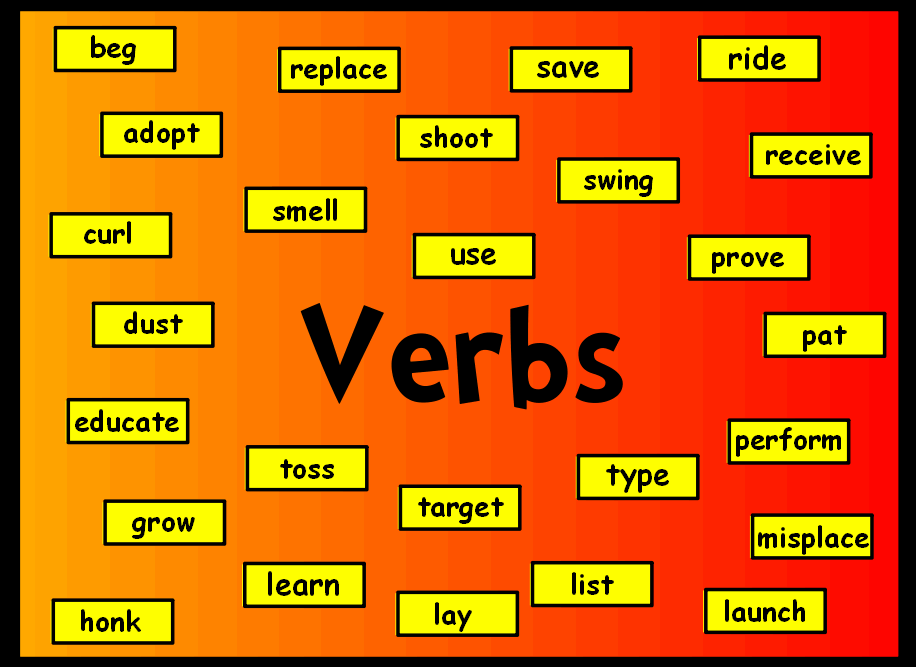




:max_bytes(150000):strip_icc()/475130399-56a939c05f9b58b7d0f96787.jpg)







